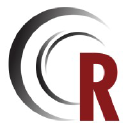Companies
Discover all trending biotech companies
Discover all trending biotech companies

Company Research Platform
Annual Revenue
$ 1,830,000,000
Global Employees
11,000
R&D Investment
24600000
This segment encompasses the core business of RadNet, providing a comprehensive range of outpatient diagnostic imaging services. These include Magnetic Resonance Imaging (MRI), Computed Tomography (CT), Positron Emission Tomography (PET), nuclear medicine, mammography, ultrasound, diagnostic radiology, and fluoroscopy. The company utilizes advanced imaging technologies and methodologies to deliver high-quality, cost-effective services. Research and development efforts focus on enhancing image quality, improving diagnostic accuracy, and developing AI-powered solutions to aid radiologists. Patient impact is significant, as these services are crucial for early detection, diagnosis, and monitoring of various medical conditions, including cancer, cardiovascular diseases, and neurological disorders. RadNet's market positioning is strong, with a large network of centers across multiple states. Future opportunities include expanding service offerings, integrating AI solutions, and forming strategic partnerships with hospitals and healthcare providers. Regulatory compliance and clinical validation are critical aspects of this segment, ensuring patient safety and adherence to industry standards. The company is also focused on expanding its AI capabilities through strategic collaborations.
This segment focuses on the development and deployment of AI-powered solutions to enhance diagnostic imaging workflows and improve radiologist interpretation. RadNet, through its subsidiary DeepHealth, is actively involved in research and development of AI algorithms for various applications, including mammography, lung cancer detection, and prostate cancer diagnosis. The technologies used include machine learning, deep learning, and computer vision. The therapeutic areas covered include oncology, with a focus on early cancer detection and improved patient outcomes. The patient impact is significant, as AI solutions can improve diagnostic accuracy, reduce turnaround times, and personalize treatment plans. RadNet's market positioning is strengthened by its strategic collaborations with GE HealthCare and Siemens Healthineers, as well as its acquisition of See-Mode Technologies. Future opportunities include expanding the application of AI to other imaging modalities and therapeutic areas, as well as integrating AI solutions into clinical workflows. Regulatory aspects involve obtaining FDA approvals for AI-based diagnostic tools. Partnerships with technology providers and healthcare institutions are crucial for the development and commercialization of these solutions.
This segment focuses on providing integrated, web-based, cloud solutions for the diagnostic imaging industry through its IT division, eRAD. The company develops and sells computerized systems for the diagnostic imaging industry, including picture archiving communication systems (PACS) and related services. Research and development efforts are focused on improving the efficiency and interoperability of imaging workflows. The technologies used include cloud computing, data analytics, and cybersecurity. The patient impact is improved through streamlined workflows, faster access to images, and enhanced collaboration among healthcare providers. RadNet's market positioning is enhanced by its ability to offer comprehensive solutions that integrate imaging services with IT infrastructure. Future opportunities include expanding the range of IT solutions and services offered, as well as integrating AI capabilities into these systems. Regulatory compliance and data security are critical aspects of this segment. Partnerships with technology providers and healthcare institutions are important for the development and deployment of these solutions.